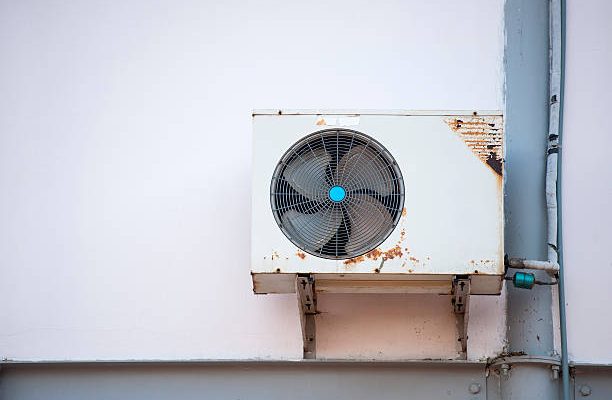If you have an old air conditioner that is no longer functional, it’s important to take the necessary steps to ensure that you dispose of it responsibly. Not disposing of your AC unit properly can lead to hazardous materials such as Freon polluting the environment.
To avoid any environmental risk, there are various safe disposal methods for getting rid of your old air conditioner. In this blog post, we’ll discuss how to identify the type of AC unit you have and how to dispose of an old air conditioner.
Identify the kind of AC unit you have
It’s important to first identify the type of AC unit you have as this will give you clues on how to dispose of an old air conditioner. If you need help identifying what type of AC unit you have, visit this website for a professional technician who can help you.
To identify the type of AC unit you have, you can look for a label or tag on the outside of the unit itself. This label or tag should include information such as its date of manufacture, model number and other important details.
Additionally, you can contact the manufacturer to find out specific information about your AC unit. Knowing what kind of air conditioner you have is essential in order to safely dispose of it.
Research local disposal regulations for hazardous materials
When learning how to dispose of old air conditioner parts, homeowners should research local disposal regulations for hazardous materials prior to disposing of their air conditioner, as such regulations may vary among different areas.
Proper disposal of hazardous materials is important to protect our environment and the health and safety of our communities.
It is also important to ensure that any pollutants released into the atmosphere do not exceed environmental standards established by the EPA or other governing bodies. To be compliant with all laws and regulations, homeowners must know the proper protocols for disposing of AC units in their area.
What facilities can you use for AC disposal?
Facilities that can be used for AC disposal include hazardous waste facilities, scrap metal recyclers, and landfill sites. When disposing of air conditioners at a hazardous waste facility, it is important to make sure that all refrigerants have been removed from the unit prior to disposal.
Scrap metal recyclers may accept air conditioners if all Freon has been removed, compressors are drained of oil, and other materials such as copper pipes and aluminum fins have been separated from the unit. Landfill sites may also accept AC units that have had all hazardous materials properly disposed of according to local regulations.
Take apart the AC unit and remove any hazardous materials
While this is a guide on how it can be done, homeowners should take extreme precautions when doing so as there are hazardous contents in AC units. If you are uncomfortable with this process, contact your local HVAC professional immediately.
- Start by unplugging the AC unit and turning off the power source.
- Remove any visible debris from the exterior of the AC unit, such as leaves or twigs, as this could damage components when taking them apart.
- Carefully take apart each part of the AC unit and lay them out in an organized manner so that you can easily put them back together later if needed.
- Check for any signs of hazardous materials, such as refrigerant or capacitors, and remove these with caution prior to disposal.
- Place all removed hazardous materials into a separate container or bag to ensure they are properly disposed of according to local regulations.
- Disassemble any remaining parts of the AC unit and organize them in a way that makes sense for re-assembly later on if desired.
- Clean up any debris around the workspace before disposing of all parts appropriately based on local regulations for hazardous materials disposal.
How can you safely dispose of the refrigerant?
To safely dispose of the refrigerant, you should first contact your local waste management or hazardous materials disposal sites to see if they can handle it.
If not, you may need to hire a professional hazardous material disposal service to come and collect it from your location. Once collected, the refrigerant should be taken to a facility that is licensed and certified by the EPA for proper disposal.
Before disposing of refrigerant, it is important to store it safely. Refrigerants should always be stored in an enclosed, secure area away from any source of heat or flame such as a furnace, hot water heater, or stove.
To avoid inhaling gas, it is important to wear protective equipment such as gloves, a facial mask, and safety glasses. Additionally, work in a well-ventilated area and be sure to avoid touching your face and mouth when handling refrigerant, as this can create an entry point for the chemical.
Cover the containers with lids or plugs to ensure that no one accidentally inhales the gas. Finally, be sure to label each container with warnings about hazardous materials and keep them out of reach of children and animals.
How should you dispose of the compressor and other components?
It is important to dispose of the compressor and other components in a safe manner.
The specific methods for disposal depend on the type and condition of the components, as well as local regulations. In most cases, compressors should be recycled by approved contractors who have experience in handling hazardous materials safely.
If you’re wondering how to dispose of old HVAC unit components, parts that are still intact may also be donated or sold to a recycling facility. In some cases, you may need to properly seal and package the compressor before disposal to ensure that any remaining refrigerant is not released into the environment.
Conclusion – How to dispose of an old air conditioner unit
When disposing of an old air conditioner unit, it is important to ensure all hazardous materials such as refrigerants and oil are properly disposed of in accordance with state and local regulations.
Facilities such as hazardous waste facilities, scrap metal recyclers, and landfill sites may be able to accept certain types of AC units for disposal. It is best practice to consult a professional service to make sure the unit is disposed of in a safe manner.




















